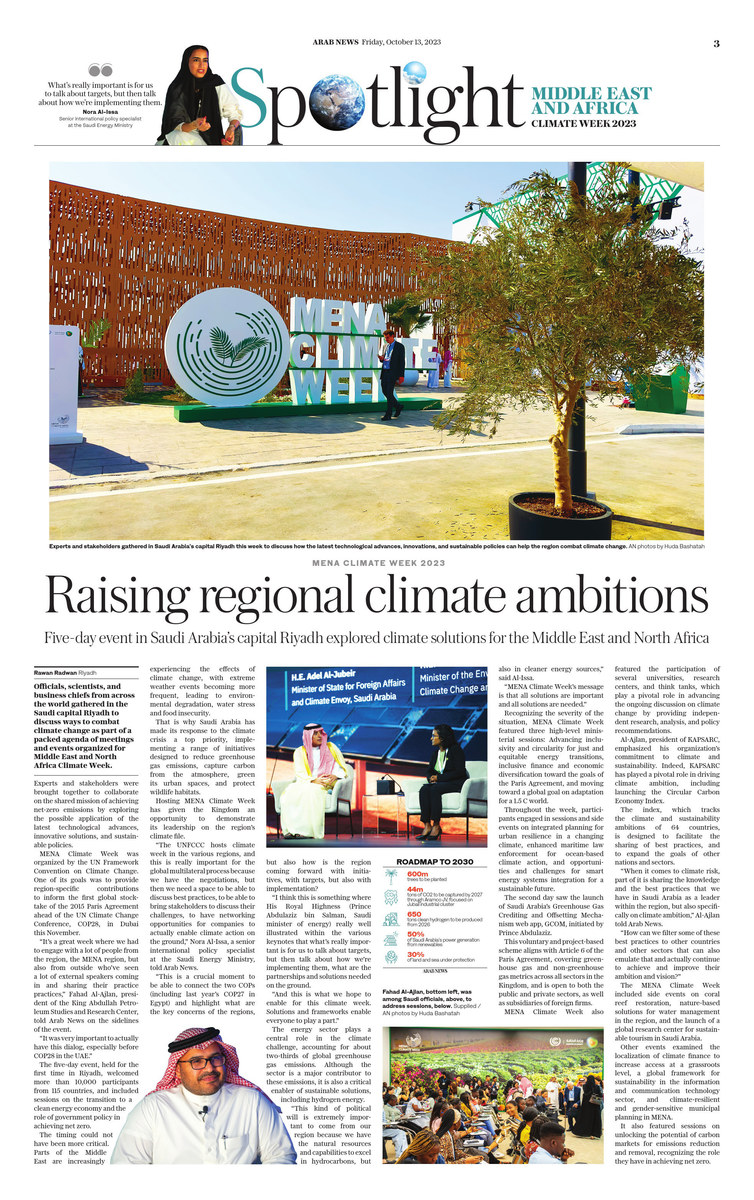RIYADH: Officials, scientists, and business chiefs from across the world gathered in the Saudi capital Riyadh to discuss ways to combat climate change as part of a packed agenda of meetings and events organized for Middle East and North Africa Climate Week.
Experts and stakeholders were brought together to collaborate on the shared mission of achieving net-zero emissions by exploring the possible application of the latest technological advances, innovative solutions, and sustainable policies.
MENA Climate Week was organized by the UN Framework Convention on Climate Change. One of its goals was to provide region-specific contributions to inform the first global stocktake of the 2015 Paris Agreement ahead of the UN Climate Change Conference, COP28, in Dubai this November.
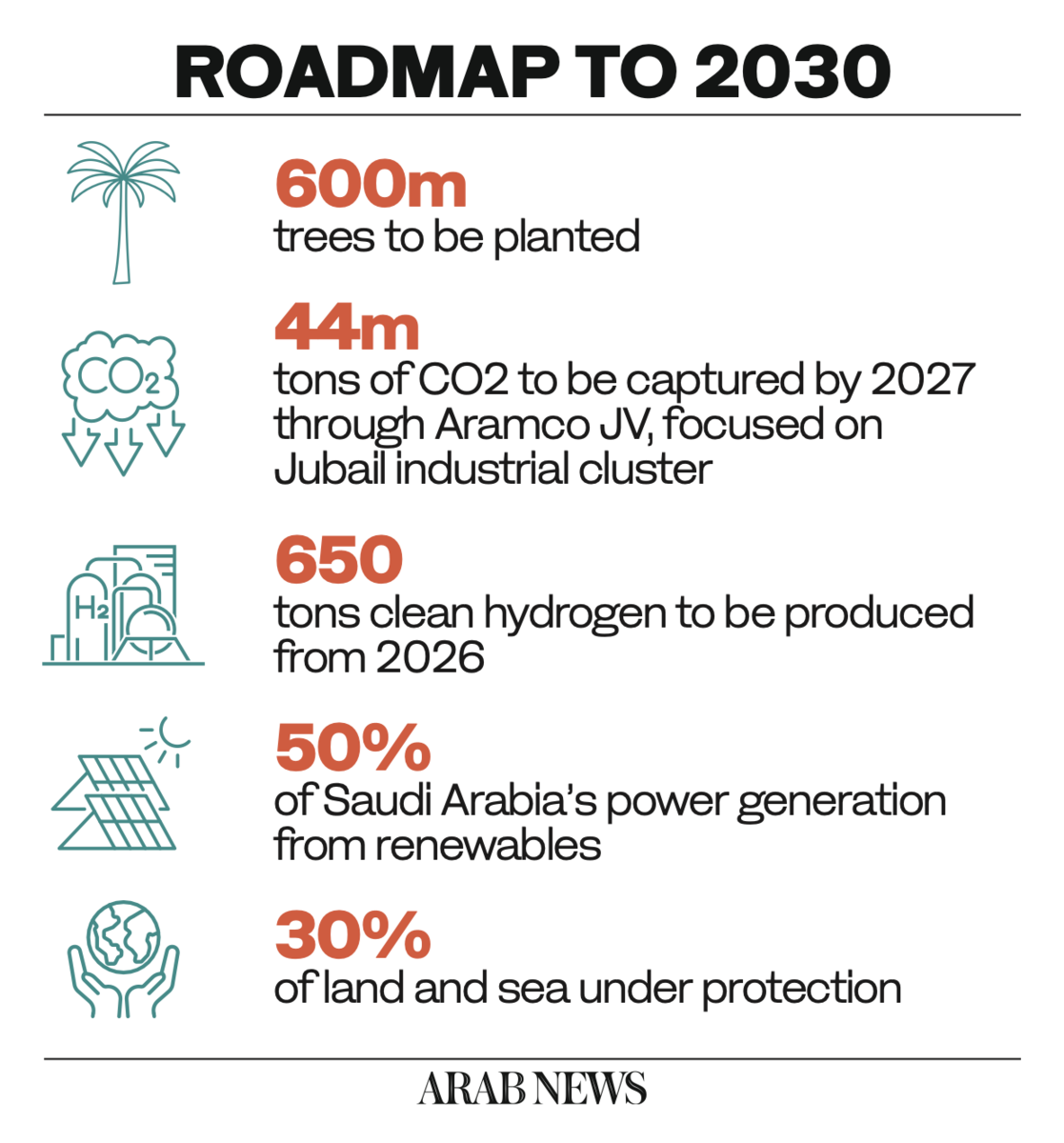
“It’s a great week where we had to engage with a lot of people from the region, the MENA region, but also from outside who’ve seen a lot of external speakers coming in and sharing their practice practices,” Fahad Al-Ajlan, president of the King Abdullah Petroleum Studies and Research Center, told Arab News on the sidelines of the event.
“It was very important to actually have this dialog, especially before COP28 in the UAE.”
The five-day event, held for the first time in Riyadh, welcomed more than 10,000 participants from 115 countries, and included sessions on the transition to a clean energy economy and the role of government policy in achieving net zero.
The timing could not have been more critical. Parts of the Middle East are increasingly experiencing the effects of climate change, with extreme weather events becoming more frequent, leading to environmental degradation, water stress and food insecurity.

More than 10,000 participants from 115 countries attended the five-day event, held for the first time in Riyadh. (AN Photo by Huda Bashatah)
That is why Saudi Arabia has made its response to the climate crisis a top priority, implementing a range of initiatives designed to reduce greenhouse gas emissions, capture carbon from the atmosphere, green its urban spaces, and protect wildlife habitats.
Hosting MENA Climate Week has given the Kingdom an opportunity to demonstrate its leadership on the region’s climate file.
“The UNFCCC hosts climate week in the various regions, and this is really important for the global multilateral process because we have the negotiations, but then we need a space to be able to discuss best practices, to be able to bring stakeholders to discuss their challenges, to have networking opportunities for companies to actually enable climate action on the ground,” Nora Al-Issa, a senior international policy specialist at the Saudi Energy Ministry, told Arab News.
“This is a crucial moment to be able to connect the two COPs (including last year’s COP27 in Egypt) and highlight what are the key concerns of the regions, but also how is the region coming forward with initiatives, with targets, but also with implementation?
“I think this is something where His Royal Highness (Prince Abdulaziz bin Salman, Saudi minister of energy) really well illustrated within the various keynotes that what’s really important is for us to talk about targets, but then talk about how we’re implementing them, what are the partnerships and solutions needed on the ground.
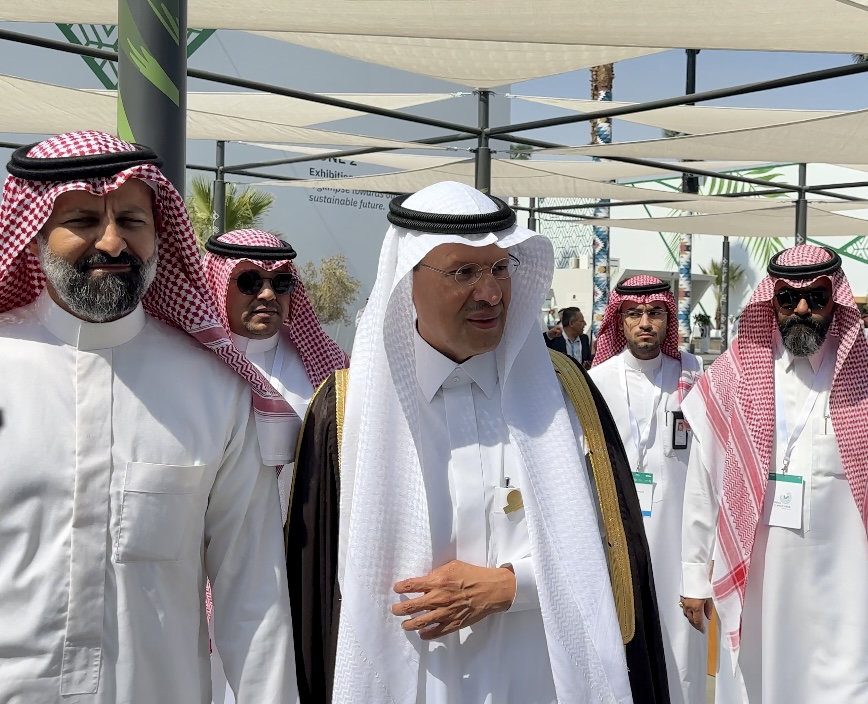
Prince Abdulaziz bin Salman, Saudi minister of energy, illustrated during the event that why it's important to talk about targets, how they’re implemented, what are the partnerships and solutions needed. (AN Photo by Huda Bashatah)
“And this is what we hope to enable for this climate week. Solutions and frameworks enable everyone to play a part.”
The energy sector plays a central role in the climate challenge, accounting for about two-thirds of global greenhouse gas emissions. Although the sector is a major contributor to these emissions, it is also a critical enabler of sustainable solutions, including hydrogen energy.
“This kind of political will is extremely important to come from our region because we have the natural resources and capabilities to excel in hydrocarbons, but also in cleaner energy sources,” said Al-Issa.
“MENA Climate Week’s message is that all solutions are important and all solutions are needed.”
Recognizing the severity of the situation, MENA Climate Week featured three high-level ministerial sessions: Advancing inclusivity and circularity for just and equitable energy transitions, inclusive finance and economic diversification toward the goals of the Paris Agreement, and moving toward a global goal on adaptation for a 1.5 C world.

Adel Al-Jubeir, Saudi minister of state for foreign affairs and climate envoy (left) and Shauna Aminath, Maldives minister of the environment, climate change, and technology of the Maldives at a high level ministerial panel. (AN Photo by Huda Bashatah)
Throughout the week, participants engaged in sessions and side events on integrated planning for urban resilience in a changing climate, enhanced maritime law enforcement for ocean-based climate action, and opportunities and challenges for smart energy systems integration for a sustainable future.
The second day marked the launch of four thematic tracks that continued throughout the week, with parallel sessions on energy systems and industry, cities, urban and rural settlements, infrastructure, and transport, land, ocean, food, and water, and societies, health, livelihoods, and economies.
Day two also saw the launch of Saudi Arabia’s Greenhouse Gas Crediting and Offsetting Mechanism web app, GCOM, initiated by Prince Abdulaziz.
This voluntary and project-based scheme aligns with Article 6 of the Paris Agreement, covering greenhouse gas and non-greenhouse gas metrics across all sectors in the Kingdom, and is open to both the public and private sectors, as well as subsidiaries of foreign firms.
MENA Climate Week also featured the participation of several universities, research centers, and think tanks, which play a pivotal role in advancing the ongoing discussion on climate change by providing independent research, analysis, and policy recommendations.
Al-Ajlan, president of KAPSARC, emphasized his organization’s commitment to climate and sustainability. Indeed, KAPSARC has played a pivotal role in driving climate ambition, including launching the Circular Carbon Economy Index.
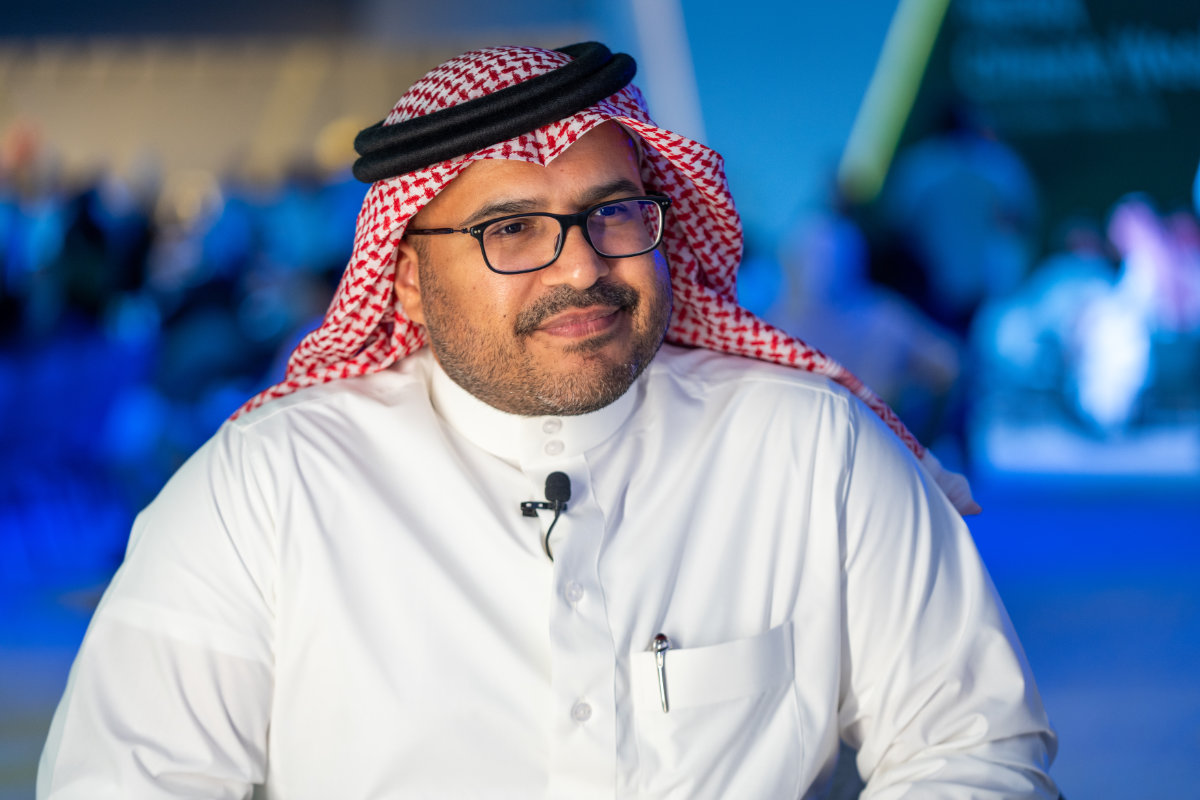
Fahad Al-Ajlan, president of the King Abdullah Petroleum Studies and Research Center, was among the officials to address the sessions. (AN Photo by Huda Bashatah)
The index, which tracks the climate and sustainability ambitions of 64 countries, is designed to facilitate the sharing of best practices, and to expand the goals of other nations and sectors.
“When it comes to climate risk, part of it is sharing the knowledge and the best practices that we have in Saudi Arabia as a leader within the region, but also specifically on climate ambition,” Al-Ajlan told Arab News.
“How can we filter some of these best practices to other countries and other sectors that can also emulate that and actually continue to achieve and improve their ambition and vision?”
The third day of MENA Climate Week included side events on coral reef restoration, nature-based solutions for water management in the region, and the launch of a global research center for sustainable tourism in Saudi Arabia.

Dignitaries and leaders from MENA and wider region attend a weeklong event. (AN Photo by Huda Bashatah)
Interactive action hubs also explored opportunities and solutions for the reuse or replacement of plastics, youth energy literacy and empowerment, and cryogenic carbon capture technology.
On the fourth day, a documentary titled “Between the Rains” was screened, shedding light on the human dimensions of climate change and the need to adapt to changing conditions.
Other events examined the localization of climate finance to increase access at a grassroots level, a global framework for sustainability in the information and communication technology sector, and climate-resilient and gender-sensitive municipal planning in MENA.
A highlight of the day was the release of a report exploring the challenges Saudi Arabia and the broader MENA region could face in a world in which temperatures could exceed 3 C above pre-industrial levels by the end of the century.
The report — the result of a collaboration between the King Abdullah University of Science and Technology, AEON Collective, and KAPSARC — offers a comprehensive analysis of the impact of climate change on Saudi Arabia’s diverse habitats.
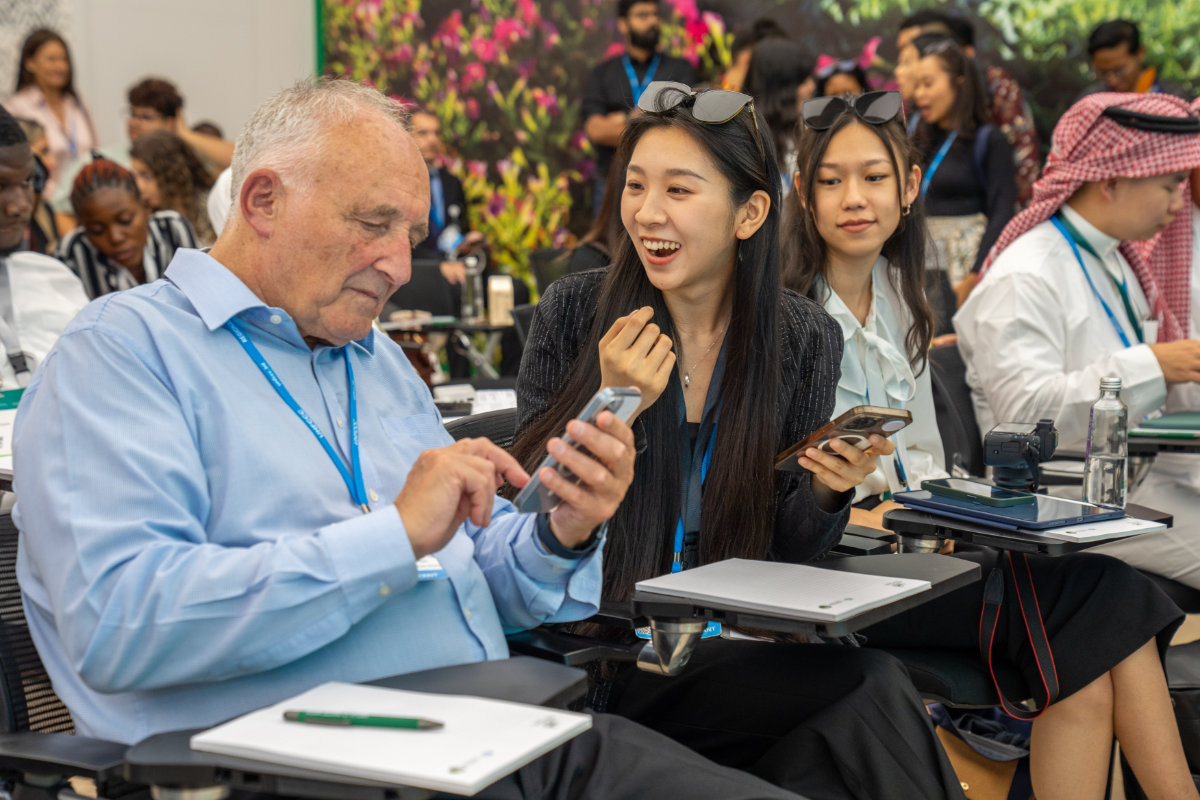
More than 10,000 participants from 115 countries attended the five-day event, held for the first time in Riyadh. (AN Photo by Huda Bashatah)
It emphasizes that Saudi Arabia is experiencing the effects of climate change at a far greater rate than other regions. The severity of these effects depends on a range of socioeconomic and emissions scenarios.
In the most extreme scenario, temperatures in the Arabian Peninsula could rise by 5.6 C by the end of the century.
The final day of MENA Climate Week featured sessions on unlocking the potential of carbon markets for emissions reduction and removal, recognizing the role they have in achieving net zero.
Discussions explored the effectiveness of carbon capture, utilization, and storage technologies and shed light on the often-overlooked subject of health impacts related to climate change.
The agenda also explored topics like smart agriculture, the circular carbon economy, and the fostering of center-inclusive green innovation, offering practical solutions that, when combined, create a holistic approach to a sustainable future.
